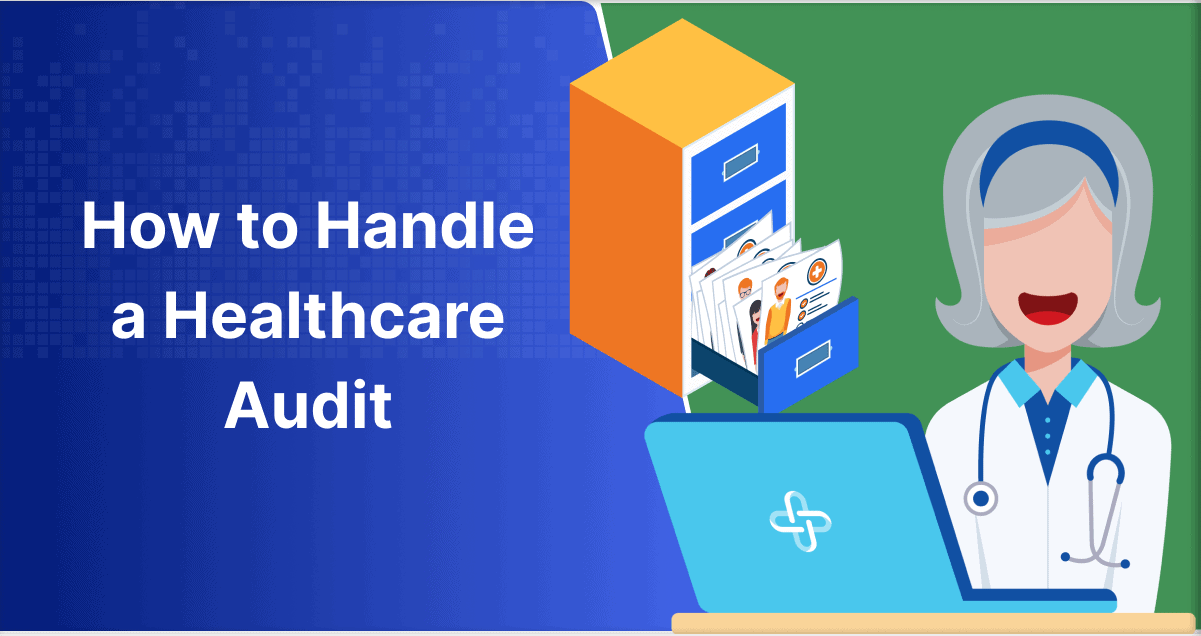Did you receive a healthcare audit? Are you worried about being audited in the future?
Healthcare audits are stressful and nerve-wracking for medical organizations, but they’re also crucial for continued compliance, quality assurance, and billing practices.
Audits can be daunting for healthcare providers, as they’re time-consuming, complex, and potentially costly. With so much at stake, providers who reach out to us for help often feel anxious and frustrated.
By understanding and taking steps to prepare for audits, providers can better navigate the process. In this article, we will help you understand what you need to know about healthcare audits.
What is a Healthcare Audit?
A healthcare audit is a comprehensive review of a healthcare provider’s operations, documentation, and billing practices. These audits are either conducted by an internal auditor within the organization or an external auditor outside the organization.
The goals of audits are to ensure compliance with regulatory requirements, identify areas for improvement, and prevent fraud. The scope and purpose of audits vary based on the type of audit being conducted.
Some common types of healthcare audits include compliance audits, quality assurance audits, and billing audits.
During a compliance audit, auditors will review an organization’s policies, procedures, and practices. The auditors will verify that they are in compliance with laws, regulations, and industry standards.
Quality assurance audits are focused on evaluating the quality of care provided and identifying areas for improvement.
Billing audits focus on the accuracy and completeness of billing and coding practices. This ensures that healthcare providers are appropriately reimbursed for services provided.
How Many Records Are in the Average Healthcare Audit?
The average volume of records released per healthcare audit varies depending on the scope and purpose of the audit. For example, a targeted audit of a specific patient’s records may only require a few pages of documentation. Alternatively, a more comprehensive audit of an entire healthcare facility may require the release of thousands of records.
Massive healthcare audit requests can be a significant burden on healthcare workers, as they require time and effort to locate, review, and release records. These requests can lead to burnout and fatigue among healthcare staff, which can ultimately affect the quality of patient care.
Additionally, massive audit requests can strain the resources of healthcare providers, especially those with limited staffing or inadequate record-keeping systems. This can lead to delays in fulfilling other record requests, potentially impacting patient care and satisfaction.
Regardless of the volume of records released, healthcare providers should only release the minimum necessary information. They must also properly organize and document their request fulfillment and records access. This can be a time-consuming and challenging process, especially for healthcare providers with limited resources or outdated record-keeping systems.
Potential Audit Risks and Penalties
Healthcare audits can be risky for providers, as they may uncover deficiencies, discrepancies, or other issues that can result in penalties or fines. Common audit risks include inaccurate documentation, improper billing, and non-compliance with regulations.
The potential penalties for audit findings can include fines, penalties, and loss of licenses or privileges.
For example, if an audit uncovers that a healthcare provider has been overbilling or providing unnecessary services, they may be subject to significant fines or penalties.
Additionally, healthcare providers may lose their licenses or face other legal consequences if they’re not compliant. Therefore, it’s crucial for healthcare providers to take audit risks seriously and take steps to minimize them.
Preparing for a Healthcare Audit
One of the best ways to handle a healthcare audit is to prepare for it in advance. Healthcare providers can do this by understanding the purpose and scope of the audit, reviewing relevant policies and procedures, ensuring that documentation is accurate, complete, and up-to-date, and designating a point of contact for the audit.
It’s also important to communicate with staff members and educate them on the audit process, including what to expect during the audit and how to handle requests from auditors.
By ensuring that staff members are aware of the audit and their role in it, healthcare providers can minimize the risk of errors and inaccuracies that could result in audit findings.
Responding to an Audit
When auditors request information or documentation, healthcare providers should follow the HIPAA minimum necessary standard. This means cooperating with the auditor and providing only the requested information.
It’s important to keep accurate records of all communication and documentation provided during the audit and to address any deficiencies or discrepancies found during the audit promptly. By responding to a healthcare audit in a timely and transparent manner, providers can demonstrate their commitment to compliance and quality of care.
If an audit uncovers deficiencies or discrepancies, it’s important to address them promptly and take corrective action to prevent them from happening again in the future. Also, you should engage with auditors to understand their recommendations and work collaboratively to address any issues they identify.
Addressing Healthcare Audit Findings
After a healthcare audit is complete, healthcare providers should review the audit findings and recommendations carefully. Providers should develop and implement corrective action plans to address any deficiencies or discrepancies found during the audit. This may include updating policies and procedures, implementing additional training or education, or making changes to billing or documentation practices.
It’s important to clearly communicate any corrective action plans to staff members so they’re aware of any policy updates. Additionally, healthcare providers should monitor their operations and documentation practices to ensure ongoing compliance with regulatory requirements and industry standards.
ChartRequest Can Help with Audits
At ChartRequest, we understand the challenges that healthcare providers face when it comes to healthcare audits. That’s why we help providers streamline the audit process and ensure continued compliance with regulatory requirements.
Our software enables your team to securely share patient information with auditors and other authorized parties. Additionally, we can automate request documentation and accounting of disclosures to reduce audit risks. Contact us today to learn more about how we can help with audits and other compliance-related challenges.


